-
•
•
61 responses
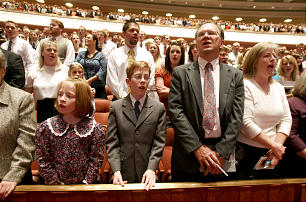
I’m currently visiting my in-laws for a few weeks. I attended their ward on Sunday and once again was shocked at the difference in the singing there compared to my home ward. Why don’t members sing the hymns in Sacrament Meeting here? Read More
-
•
•
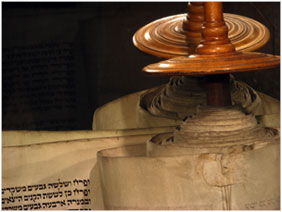
A reminder: these are not notes for preparing a Sunday School lesson—though they may help a person do that. They are notes for studying the chapters assigned for reading. Arthur Bassett has pointed out these parallels between Elisha, on the one hand, and Moses and Christ, on the other. (All scripture references are to 2 Kings). Elisha parts the water [2:14] (as Moses parted the sea and Joshua and Elijah parted the Jordan)—Jesus parts the heavens at the time of his baptism in the same Jordan. He supplies water [2:19-22] (as had Moses)—Christ presents himself as the living water. Waters… Read More
-
•
•
21 responses

This post is brought to you by the letter “V”. (Don’t worry, that’s grape juice in the picture. Really. I’m sure it is.) Vigor. Verdant. Vibrant. Vivacious. AliVe. These are the qualities I expect true religion to inculcate. Does it make me think more? Does it make me love more? Does it make me see more? Does it make me do more? Does it make me be more? “These things are fun and fun is good.” Does it make life awesomer, and does it make me awesomer? Or, as Parley P. Pratt so effectively stated: The gift of the Holy… Read More
-
•
•
44 responses
This promotional video from BYU’s Harold Lee Library is so well done it deserves it’s own post at Times & Seasons. That’s how good it is. Read More
-
•
•
24 responses

Alright people, here we go…on labels! (apollo, this one’s for you.) Labels of preference These are the labels anyone can just pick for themselves. “Awesome”, “feminist”, and “Abba fan” are all labels of preference. You just pick one, apply it to yourself, and no one can say you’re wrong! These labels aren’t owned by any organization, so they mean whatever you want them to mean. Labels of significance These are labels a person must earn, like “doctor”, “lawyer”, and “cosmetologist”. Labels of significance are “owned” by an organization, like the American Medical Association owns “doctor” (at least in America). In… Read More
-
•
•
8 responses
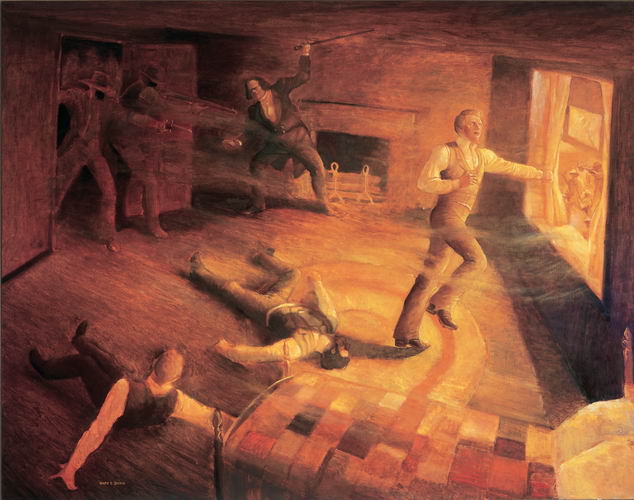
In 70 AD, the Romans capped their extended campaign to crush a Jewish revolt by destroying the magnificent temple in Jerusalem. The Jews lost their temple. Earlier, they had lost political autonomy and the kingship; later, in 132 AD, another Jewish revolt was suppressed and Jews were barred from living in or even entering Jerusalem. Despite this loss of temple, king, and land, the Jews adapted and Judaism endured. In the 19th century, Mormons had their own sharp if somewhat less dramatic struggle with American government and culture. What did we Mormons lose? Read More
-
•
•
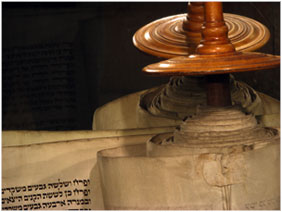
Elijah We know from passages in the New Testament and, especially, from Latter-day revelation, that Elijah is one of the most important prophets to have lived. (In the Jewish tradition, he is second only to Moses.) Yet we know almost nothing about him. Why do you think that is? In addition to the story of his life, in these and the next few chapters of scripture, we have Malachi’s prophecy that Elijah would come to bind the hearts of the fathers and the children (Malachi 4:5), as well as the repetition of that prophecy in several places, notably in D&C… Read More
-
•
•
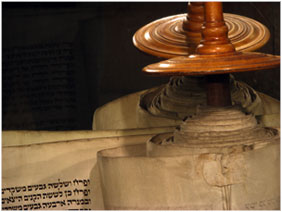
The material of this lesson, especially that of chapters 12-13, is important to understanding the rest of Old Testament, for the eighty years that it covers details the split that occurred between the ten tribes of Israel in the north and the tribe of Judah/Benjamin in the south. Since these accounts, like the rest of the Old Testament, were edited many years later (for example, after the return from Babylon) by descendants of those in the southern kingdom, you should think about what their point of view would have been and how that might have shaped their version of the… Read More
-
•
•
23 responses
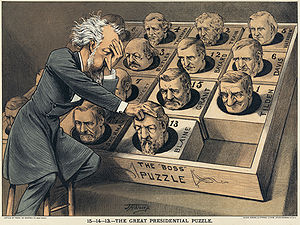
I’ve just been called as a seminary teacher. Today I was sustained during sacrament meeting. I’m really excited about it — I enjoy working with youth, I enjoy the scriptures, and I enjoy teaching. Heck, I’m even a morning person. The course of study is the Doctrine & Covenants. It has me thinking about how to help them understand the role that the scriptures play in the church. When I was twelve-or-so years old, I had a teacher who wanted us to understand the importance of the scriptures. He encouraged us to bring our scriptures to class each week, and… Read More
-
•
•
54 responses

The result of writing Book of Mormon history from back to front, I think, resembles a cross between The Mission and Last of the Mohicans. Read More
-
•
•
95 responses

People leave the church because…well, I don’t know. I’ve had a few acquaintances who’ve decided to be done with it, but I’ve never sat down and talked with them about why. If I were to guess, it’s because they discovered things they didn’t like about the church and decided to head out to where things are better. That’s why this article on gender stereotypes and science caught my eye—it’s easy to think that the cultural difficulties we try to navigate in the church are specific to the church. I wonder how many people leave the church thinking, “I’m done with… Read More
-
•
•
34 responses
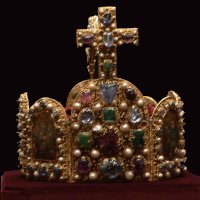
If you think that the textual history of the Book of Mormon includes historical records, then you can’t avoid the possibility that a lot of Book of Mormon scholarship has been looking for the wrong people in the wrong place at the wrong time, and reading the wrong verses. The problem is that Book of Mormon chronology is anchored in time only by the fall of Jerusalem and Christ’s appearance to the Nephites. But these events belong to sacral history, and their translation into historical chronology is not necessarily transparent. In the same way, the identification of the Nephites as… Read More
-
•
•
26 responses
Last Sunday, we attended a family member’s baby blessing in a Spanish Ward in Utah. My rudimentary high school Spanish was no help at all. Read More
-
•
•
The Story This week’s lesson focuses on the construction of the first temple. Previously there had been many places for offering sacrifices and several buildings that we would call temples. But this is the first one built on the site traditionally associated with Abraham’s sacrifice of Isaac. As this temple came to prominence, it overshadowed the others and, by the time of the return from Babylon, it became the only one recognized. The first two chapters of 1 Kings are the background for that temple-building. Chapters 1-2 deal with the final days of David, when his son, Adonijah, aided by… Read More
-
•
•
39 responses

The post is brought to you by my wife, Heather. Please be nice to her :) ****** It was time for Dane and I to have a discussion — the, “our baby is approaching 15 months old, do we want to have another one?” discussion. We currently have three wonderful, healthy children. At one point in this discussion I told my husband that I would probably feel guilty for not having more. He was surprised and asked why I should feel guilty. So I told him and the answer surprised him even more. Actually, this is why I am writing… Read More
-
•
•
18 responses
I probably shouldn’t tell you this, but on more than one occasion, I have seriously considered stealing scriptures from the temple. Read More
-
•
•
2 responses
Google maps has added aerial views to a limited number of locations. I just saw (hat tip: Paula) that the San Diego temple is one of them. It’s a pretty cool feature. How do you see it? Unfortunately there’s no one-click link, because you have to enable aerial views. So it’s a slightly more elaborate process: 1. Go to the San Diego temple on Google Maps. (Click here.) 2. Click the little green “Labs” chemical-beaker icon at the top of the screen. (It’s above the Print button). Click “enable” on the tab that asks about Aerial Imagery. That’s it! You… Read More
-
•
•
5 responses
The preliminary program for the Sunstone symposium is available, and includes many familiar names. Some of the bloggernacle folks who are listed include: Wednesday: 9:30 – John Dehlin (Mormon Stories) 2:00 – John Dehlin Thursday: 11:15 – Mormon feminism panel including Alisa (ExII) and Tresa (FMH) 2:15 – Tresa (respondent to Laura Compton) 4:45 – Janet, Kathy, Tresa, and Tracy – Joanna Brooks (Mormon Matters) Friday: 3:30 – Bridget Jack Meyers Jeffries 4:45 – Sheila and Sara panel -Mormon women on tour panel (Joanna Brooks, Holly Welker) 8:00 – Tracy (BCC) Saturday: 11:15 – DKL talking about Glenn Beck. Bring… Read More
-
•
•
2 responses
After retirement, my father turned to family history and temple work to fill his time. Most of this work has focused on researching ancestors from Virginia and North Carolina. I took this photo at a cemetery in Carrol County, VA, near the the birthplace of my father’s grandparents. My father is shown in the picture. While in the cemetery he was able to locate headstones of people for whom he had completed temple work. It was the first and only time that my father has visited this place that has taken so much of his attention. As a side note,… Read More
-
•
•
16 responses

I took a stroll through the End of the World last week. Brought the wife and kids and a picnic lunch. It was beautiful, as always. But one of these days (and it won’t be long) it will be gone. Maybe us too. Read More
-
Church History, General Doctrine, Philosophy and Theology, Scriptures, SS Lesson – Doctrine and Covenants
•
•
31 responses

I have been working on a paper looking at the Doctrine and Covenants, and my research has me thinking about how the texts of modern revelation were produced. I think that there are a lot of Mormons who assume that the words of the revelations in the Doctrine and Covenants were dictated word for word to Joseph. On this model, the Doctrine and Covenants is rather like the Qua’ran, which also consists of a series of revelations given to a prophet over a period of years in response to concrete historial circumstances. Pious Muslims affirm that the Qua’ran was dictated… Read More
-
•
•
21 responses

I’m hungry. I need a hot dog. Nate’s Dawgs smells delicious, but they’re a little pricey. Joe’s Rolled Meats are cheap, but they taste like cigars. Trader Moe’s dogs are additive free, so I guess they’re healthier than the others. But the girl at the Delirama counter is a total babe. How can I possibly select the optimal hot dog stand? Read More
-
•
•
28 responses
In a PEW survey a few months back, 24% of American adults indicated that they believed in reincarnation (ie, that people will be reborn into this world again and again). Apparently many Christians don’t have a problem overlapping their Christianity with Eastern beliefs. Read More
-
•
•
4 responses
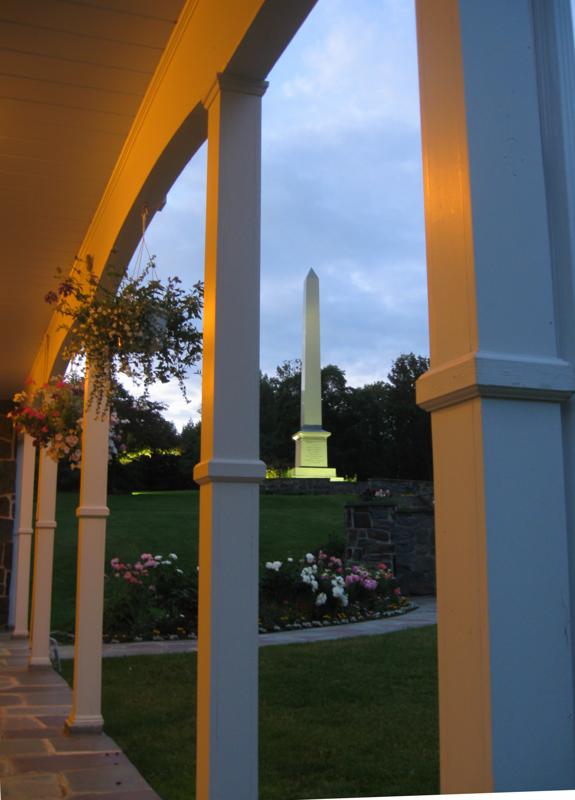
“I was born in the year of our Lord one thousand eight hundred and five, on the twenty-third day of December, in the town of Sharon, Windsor county, State of Vermont.” Joseph Smith History 1:3 By Gary Boatright Jr. ___ This picture is part of our ongoing series highlighting Mormon images. Comments to the post are welcome; all comments should be respectful. In addition we invite you to submit your own images to the Mormon Image series. Other images in the series can be found here. Rules and instructions, including submissions guidelines, can be found here. Read More
-
•
•
25 responses

It seems to me that there are two contradictory sets of underlying assumptions about the plan of salvation. One is the “salvation as a game” perspective and the other is “salvation as a journey” perspective. The key difference between a game and a journey is that in a game the rewards are given by people, while in a journey the rewards are obtained from nature. For example, money, gifts, recognition, and grades are rewards given by people. In a game, someone has the authority to bestow the reward. In a job, your boss has the authority to grant your paycheck;… Read More
-
•
•

I’m going to skip my usual whine about how much material is covered in the reading for this lesson (unless announcing that I won’t whine counts as a whine). Overview One traditional division of the book of Psalms—often called “the psalter”—divides it into five sections, on analogy with the five books of Moses: Psalms 1-41, Psalms 42-72, Psalms 73-89, Psalms 90-106; and Psalms 107-150, with Psalm 150 being the closing doxology for the whole collection. Those who accept this division understand the first and second psalms to be an introduction to the psalter as a whole, so some manuscripts give… Read More
-
•
•

2 Samuel 11 Verse 1: What do you make of the fact that the story is set at the time of the year when “kings go forth to battle,” but David sent his army to battle and stayed behind himself? What is the writer telling us about David when he says “But David tarried still at Jerusalem”? (Note: presumably the time when battles could once again commence was at the end of the rainy season, approximately the beginning of May.) Verses 2-5: How do you suppose that David could see Bathsheba bathing? Where do you think people would usually have… Read More
-
•
•
16 responses

I’m going to briefly argue for the general importance and contemporary relevance of the Journal of Discourses. But first, let me say: My grandpa (Max Olsen) is a very good man. Read More
-
•
•
40 responses
This week, the Rochester Stake in New York is sponsoring a special performance of Carol Lynn Pearson’s Facing East, to be followed by a fireside featuring a discussion led by the Rochester Stake President. Notably, the performance is being directed by Jerry Argetsinger, who was the long-time director of the Hill Cumorah Pageant throughout the 90s, and costume design is being handled by Gail Argetsinger, a Tony award-winning costume designer who designed and supervised the construction of thousands of pageant costumes during the 90s. For those unfamiliar with Facing East, it is the story of a Mormon couple who is… Read More
-
•
•
3 responses
We’ve been teaching our oldest son Peter that he’s a big brother to our younger son Jeremy. When Peter learned that Joseph Smith also had a big brother, he fell in love with the concept. Now whenever we go somewhere church-related, he asks, “Will there be a picture of Joseph and Hyrum?” By Robert Gibbons ___ This picture is part of our ongoing series highlighting Mormon images. Comments to the post are welcome; all comments should be respectful. In addition we invite you to submit your own images to the Mormon Image series. Other images in the series can be… Read More
